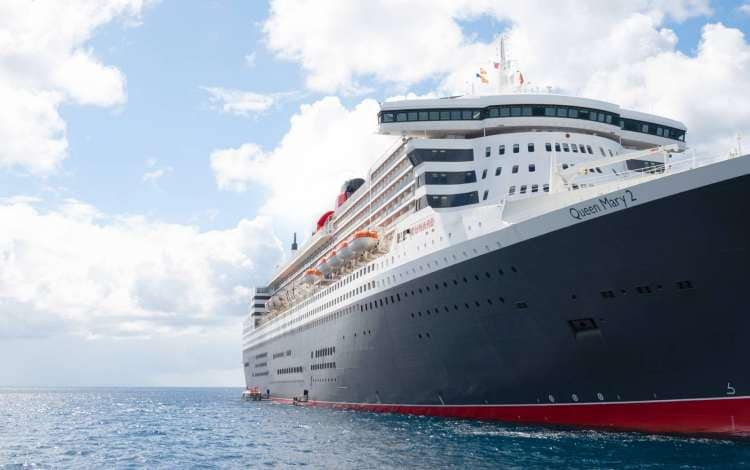New Culinary Residencies in 2026




New ground-breaking research conducted by human understanding agency Walnut on our flagship, Queen Mary 2, confirms that just five days at sea can positively impact various cognitive abilities, such as memory, logical reasoning, perceptual abilities and problem solving, demonstrating that our iconic Transatlantic Crossing significantly benefits mental and emotional wellbeing.
In a first-of-its-kind neuroscience study, the results revealed that our Transatlantic Crossing, combined with our programme of enriching experiences, can increase cognitive abilities by 26%, making guests more alert, focused, and resilient.

This study reinforces what we have always known - a Cunard voyage is much more than just a holiday. Our thoughtfully curated enrichment programmes, bespoke wellness experiences, world-class dining, and renown White Star Service combined with the opportunity to unwind and embrace the serenity of the ocean, leave our guests feeling refreshed, inspired and reinvigorated.
Katie McAlister, President of Cunard
Walnut tested a number of cognitive abilities by using biometric tools to measure cognitive and physiological changes before and after five days at sea. These tools were a neurofeedback device, which captures brain's electrical activity, and Galvanic Skin Response (GSR) measurements, which capture physiological arousal through changes in skin conductance produced by sweat.
The neurofeedback device measured participants':
The GSR measured participants' responses to qualitative and quantitative questions about their wellness and mood.
As aforementioned, the tests were conducted both before and after 5 days at sea to see whether responses changed between sessions.
The results were remarkable, showing notable improvements in memory, problem-solving, attention, and overall emotional wellbeing.
The study found that both conscious and objective measures of stress indicate higher relaxation after the cruise. Guests consciously reported feeling better, and those telling us they had been “feeling relaxed’ increased by 158%. Moreover, overall stress levels reduced by 35% on average, as indicated by physiological arousal levels.
The test discovered an average 26% increase in cognitive abilities such as memory, logical reasoning, perceptual abilities and problem solving.
Memory: A successful recall of words increased by 29% (from 4.8 words to 6.18), indicating enhanced short-term memory performance
Problem-solving: Logical and spatial reasoning accuracy increased in the most complex task set by 125%
Attention: 14% improvement in focus during visual tasks
The study saw physiological indicators that reflected the 26% increase in performance on cognitive tasks, on average it showed a 7% increase in attention, 4% increase in engagement and a 24% decrease in stress levels during the cognitive tasks. Notably, five days on board, guests displayed a greater ability to cope with high cognitive load in the most complex logical task set: with physiological measures of engagement increasing by 28% and stress dropping by 29% for the most complex task
Puppies usually trigger a strong emotional reaction in the brain, after travelling on the QM2 for five days guests' brains showed the same emotional response to cruises than they did to puppies (both scoring above the average benchmark for positive brain engagement at 57%) with high cognitive load after their time on board; with physiological measures of engagement and attention increasing by 28% and 4%, respectively, and stress dropping by 29%.

What stands out for me in this study is how neatly all the pieces fit together. The passengers time on the ship clearly reduced their stress levels, based on subjective and objective measures. The main stress hormone cortisol is well-known in the science research literature to interfere with various cognitive processes. So the boost in memory and logical reasoning capacity identified in this study is likely to be attributed to the stress-relieving impact of ocean travel. This combined with the amazing array of stimulating activities on board the world’s only ocean liner, allows the passengers brains to unlock their full potential.
Dr. Jack Lewis, neuroscientistBeyond the study’s cognitive findings, our unique offering provides an unmatched sanctuary for relaxation and renewal. From captivating lectures by world-renowned experts as part of the Cunard Insights programme to personalised wellness treatments, each element of the voyage is thoughtfully designed to foster wellbeing. This is all complemented by our celebrated White Star Service, ensuring every moment aboard is distinguished by personalised attention and elegance.
1
of
8
Sign up to hear about exclusive updates, offers and competitions, and we’ll take care of the rest.